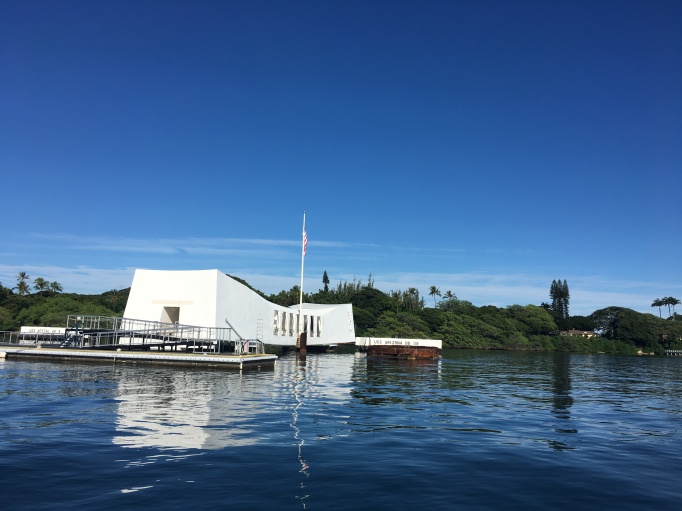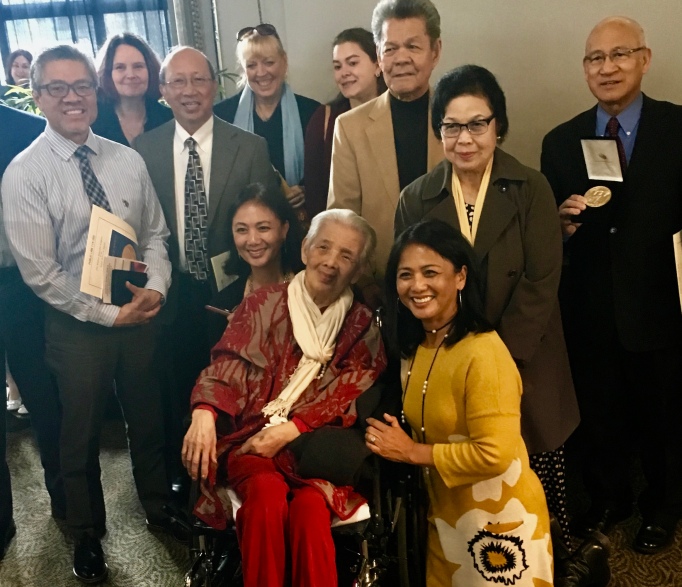
On this day, 77 years ago, the day that would live infamy, bombs stormed over Pearl Harbor.
Several hours later, Japanese forces attacked the Philippine Islands.
My Father was a Philippine Scout being trained under the command of the United States Army at Fort Stotsenberg the day that Japanese fighters appeared in the sky, firing over troops that had only few hours earlier received word about the attack on Pearl Harbor.
“The bombing and raiding of Fort Stotsenburg and Clark Field within hours of the raid on Pearl Harbor went virtually unnoticed by the average person in the United States. The attack occured at little after noon, while all our planes—the bombers and P-40s—were lined up in a row on Clark Field. Finally after what seemed like hours of bombing and strafing, everything became quiet, except for the cries and screams of the wounded lying intermingled with the dead all over the field. The history books associate Pearl Harbor withe “the day of infamy,” but for those of us in the Philippines it was our day of infamy also.” Lester I. Tenney, My Hitch in Hell, pg 21
I visited Pearl Harbor last month, gaining a greater appreciation why, growing up, my father would announce on this day, “Today is December 7. Pearl Harbor Day.”
Scratching the surface these past months of my father’s written records of the military service he never verbalized, I understand now why he was quiet. Why he was silent. What visages must have remained in his dreams and memories that haunted him.
How much in meant, in December 1946, one year after World War II was over, that my father was granted citizenship to the United States of America for his service during the war and for surviving and escaping the brutalities of the Bataan Death March.

It is because of his sacrifice that his name lives on, BERMUDEZ, here in the United States of America, even through three grandnephews who carry on his service today as officers in the United States Army and the United States Air Force. To you, Julian Bermudez, Michael Ishida, and Chris Ishida, I commend you for carrying the service that my father began. He would be so proud to see you commissioned as officers in the United States Armed Forces.
It is because of his sacrifice that our family and extended family live here today, educated in major universities, bearing the college degree that he never received but always dreamed of for ourselves and our children.
Yesterday his youngest grandson stood along the train tracks in College Station, Texas, to witness the train of the 41st President of the United States, George H. W. Bush, roll past, carrying his casket on its way to his final resting place at the George Bush Library on the campus of Texas A&M.

President Bush’s service as a naval pilot in the Pacific, and my father’s service as an artillery man on the front lines of Bataan made them both part of the Greatest generation.
Next week my father’s youngest grandson will graduate from Texas A&M University, awaiting admittance into medical school.
After his graduation ceremony our family will pay tribute on the library grounds to the 41st President of the United States.
But my son’s graduation from college will be a tribute to the sacrifice and dreams of his grandfather.

SGT Jesus C. Bermudez received the Gold Congressional Medal of Honor for his service during World War II on April 15, 2018











 Today my father would have been 98 years old.
Today my father would have been 98 years old.












































